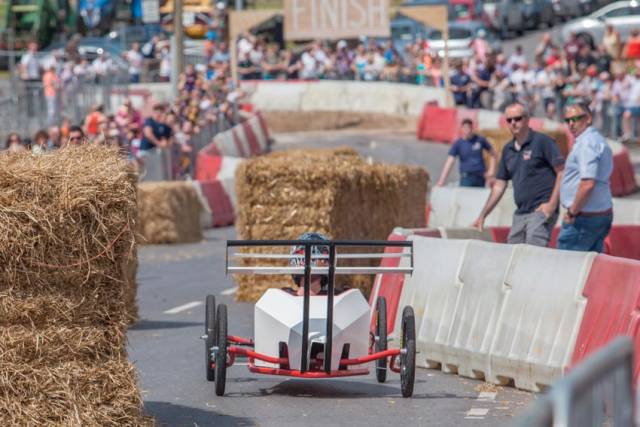Final preparations are being made ahead of this weekend’s Bundoran RNLI Soapbox Race which takes place this Sunday 2 June at Astoria Road.
Now in its eighth year, the event is organised and hosted by the volunteer crew of the Bundoran RNLI lifeboat and is a major fundraiser for the charity.
The event is expected to attract as many as 2,000 soapbox enthusiasts and their supporters with race winning between 1pm and 4pm, weather permitting.
The prize up for grabs is the highly coveted Perpetual Cup and 12 months of bragging rights.
And the ever-popular €1,000 ball race will also take place directly after the soapbox final has been run, with balls on sale at just €5 from lunchtime on the day.
Event director Cormac McGurren says that the crew is looking forward to the day.
“The soapbox race is always the talk of the station for the weeks and months before it happens. It’s a fun family day out with lots of thrills and spills expected.
“We would like to thank in advance all of our sponsors, prize donors and local volunteers who are helping to run the event and also to sell the balls.”
Those wishing to race a soapbox on the day are encouraged to register online, though last-minute registrations on the day will be accepted.
There will be a number of traffic restrictions in place this Sunday to facilitate the race. Astoria Road will be closed from 8am till 7pm on Sunday at the junction with Main Street.
Traffic for Waterworld, Bundoran Adventure Park and Ozanam House should use Promenade Road and Atlantic Way. Traffic for Main Beach, Great Northern Hotel and Bundoran Golf Club should use Sea Road. Main beach car park will be open for parking as normal (with access via Sea Road).
































































